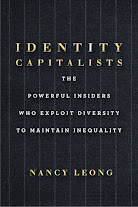In some ways, the professional librarian work that I’ve performed as a librarian can be said to be performative. It's a profession that is highly social, and with it comes the unwritten rules of the office place. Charlie Wazel and Anne Helen Petersen’s Out of Office: The Big Problem and Bigger Promise of Working From Home offers an insightful framework into the transition of working from home, particularly during the past two years of the pandemic.
Socializing outside of work as an expectation of our work is really problematic. In many ways, the pandemic has put a hold on this, and it might be an opportunity to disrupt the romantic notion that team building outside of the workplace can actually be forced rather than organically happen.
Some workplaces also go as far as calling themselves a “family,” which the authors assert is deeply misleading and even manipulative so as to skirt potential issues of behaviour that may be more acceptable in real families. Then there is the notion of the “organization man” is a product of the post-war period when individuals (usually men) were loyal to the same company from the beginning to the end of their careers. This type of corporatism “live action role playing” (LARP) has led to burnout that centred on showing up as early and leaving as late as possible at the office as a torturous type of show performance “to be seen” even when there's no work to be done.
The authors believe the pandemic has helped reset and “level the office playing field” with remote work. Prior to the pandemic, it was said that it couldn’t be done. But my work has been as productive as before the pandemic. And I’m sure many others have appreciated the time saved not only from drivelous travel times stuck in traffic but also the work-life balance. But I also return to the problem of FOMO - which can be detrimental in hybrid and remote work as well. Just as the office was designed to benefit those who had little or no responsibilities, we must take care so that hybrid work doesn't actually deepen this divide in which:
Single parents, workers with elder family members, disabled employees, and those who simply don't want to live in proximity to the office risk being overshadowed by those who come in every day. . . proximity bias might emerge. Ambitious, competive employees will sacrifice remote flexibility and work relentlessly in person, while remote employees, motivated by the anxiety of not seeming productive, will live in fear of managers and overcompensate with overwork. Both sides end up driving the other to misery.
Just as hybrid work evolves and continues to shape the contours of work spaces, we need to take extra care in ensuring equity and inclusion remain pillars.


